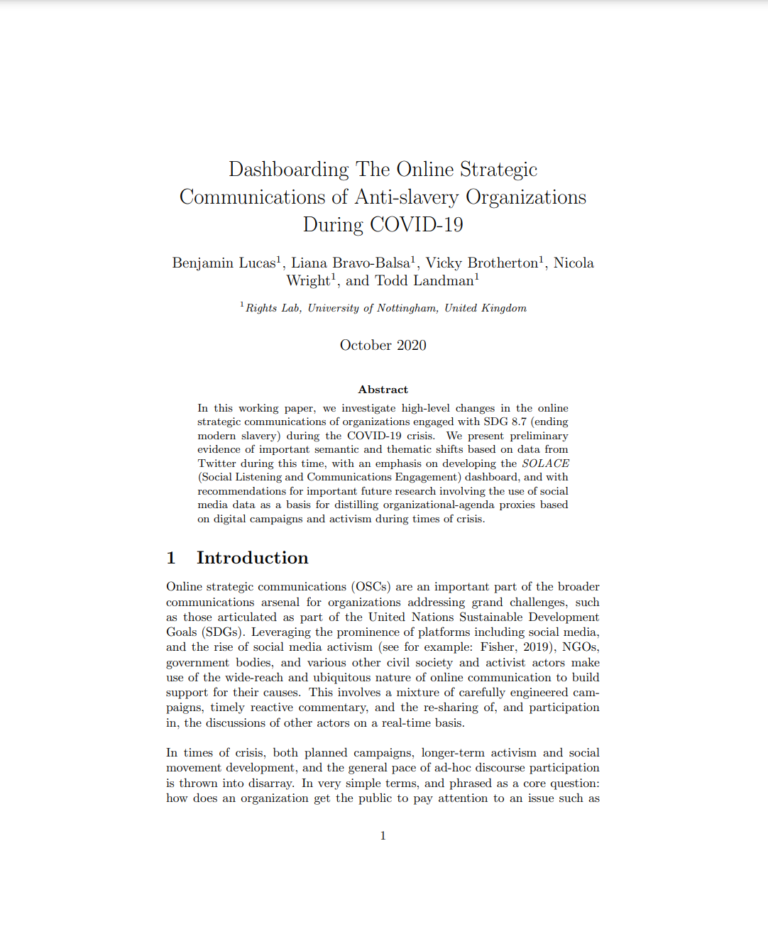The Impact and Consequences of the COVID-19 Pandemic on Trafficked and Exploited Persons
COVID-19 resourcesPublicationsThe COVID-19 crisis has a potentially far-reaching, long-term negative impact on trafficked and exploited persons. Although at this stage it is not yet possible to assess the full impact of the pandemic on human trafficking, it is sure that its soci...Read More

